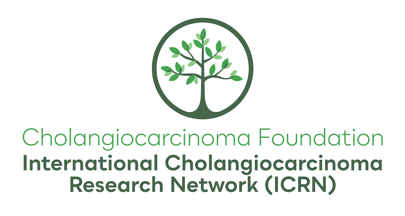| Name |
|
Nilofer Azad |
| Organization |
|
Johns Hopkins |
| Can you tell us a bit about yourself? |
|
I am a very fortunate physician that went into medicine thinking I was going to take care of patients, and by happenstance over the course of my training, was exposed to wonderful mentors and research leaders who whet my appetite to make a difference through clinical research. I am a faculty member at Johns Hopkins, where I work with the best group of doctors and other medical professions to take care of patients while working to increase the options available to them. I have a wonderful family and group of friends who provide my life's foundation. I consider myself very lucky to get to do what I do. |
| Can you share one or two of your specific research interests? |
|
I have an interest in combining novel agents to advance the therapeutic options for advanced cholangiocarcinoma patients. I am particularly interested in epigenetic and immunotherapies, both together, and how epigenetic alterations may impact the immune response. |
| Why did you decide to specialize in hepatobiliary cancers? |
|
Good luck. I was running an early phase clinical trial in advanced solid tumors early in my career and saw some possible benefit for cholangiocarcinoma patients. I decided to open a dedicated trial arm to cholangiocarcinoma, and then it was off to the races. I began looking at all my drug development though the lens of how it might help cholangiocarcinoma patients, and how we might modify strategies to make them more appropriate to cholangiocarcinoma biology. |
| Can you describe one of the unforgettable moments in your patients care or research that has impacted your career? |
|
The beauty of our job is that there is no one moment that encapsulates the meaning of what we do. Rather, our careers are an amalgamation of hundreds of people we have taken care of and worked with -- all of whom have taught of the essence of what life is about. Family. Friendship. Health. Love. Generosity. Suffering. Perseverance. Intellectual Joy. We have been given such a gift to have found this particular calling, working with cancer patients. |
| Can you tell us one thing collaboration with colleagues could accomplish that you could not accomplish on your own? |
|
The underpinnings of cancer biology are so complex that no one investigator has the needed expertise to understand all of the nuances of any given approach. Team science allows for us to assemble groups of people with varied skill sets and knowledge bases which dramatically improve the chance we will find a new treatment and eventual cure for this cancer. |
| If you had access to one resource that would move your research forward, what would that resource be? |
|
More funding. There are so many exciting ideas that are delayed by the lack of funding to move them forward. For example, we have a personalized vaccine study that it extraordinarily expensive to generate for each patient. This kind of personalized immunotherapy approach is presently limited due to lack of funding. |
| How did you learn about the Cholangiocarcinoma Foundation? |
|
Honestly, I don't remember not knowing about CCF - it is so ubiquitous in cholangiocarcinoma patient and researcher circles. |
| Can you tell us why you became a member of the ICRN? |
|
It is an exciting group of people that pushes me to refine my ideas and make them into reality and work with others to do the same with theirs. It is an incredibly giving group of caring doctors and researchers. What a great community. |

